On 25th April it will be 100 years since Australian and New Zealand soldiers charged the beaches in Gallipoli, Turkey, in an attempt to beat the Turks and give the Allies a chance to take Constantinople. They were mown down, slaughtered. The battles continued for months until December 1915 when they withdrew, defeated. Out of a population of less than 5 million, Australia lost 8,000 young males at Gallipoli.
The following year, 1916, my grandfather, Ernest Bruce, joined the army after stowing away on a ship of volunteers headed for Egypt. In July at Pozières, France, on the Western Front, he was trapped under concrete in an explosion, and then gassed. But he survived. He was one of the 40,000 Australians killed or wounded in 1916 on the Western Front (see AWM). That’s a huge part of a population of 5 million.
When he returned to Australia, he was too ill to work for more than a few days a week, yet it took the government years to offer him a pension.
His oldest son was my father, Ronald Bruce, who hadn’t learnt a thing about the futility of volunteering to fight in a war. In 1941 he joined the army, was sent to Egypt, and months later was sent home with shell shock. He couldn’t hold down a job, and at 25 was offered a pension.
This Anzac Day, I honour my father and grandfather for volunteering to participate in Australia’s defence.
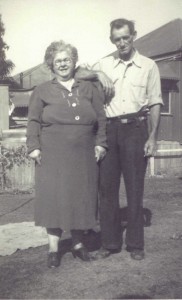
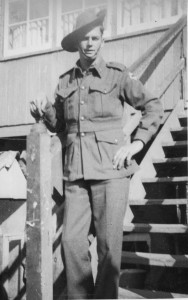
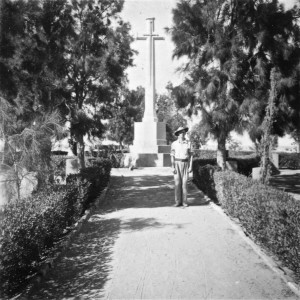
At the Australian War Memorial in Canberra there is a wall called the Roll of Honour. It’s covered in the names of Australians who have died in war. My grandfather and father are not on the wall because they returned alive; but my grandfather’s three cousins, the Shaw brothers, and my grandmother’s two cousins, the Burley brothers, did not. They are all buried on the Somme in France, and their names are here on the wall. I put poppies beside their names.
Since I learnt that they were all killed while my grandfather returned, I haven’t looked at life the same way.
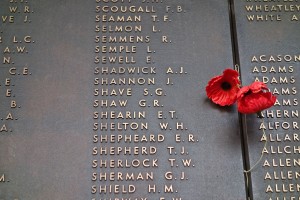
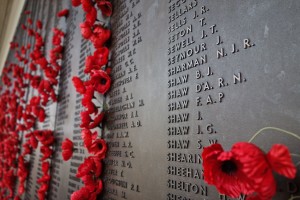
*****

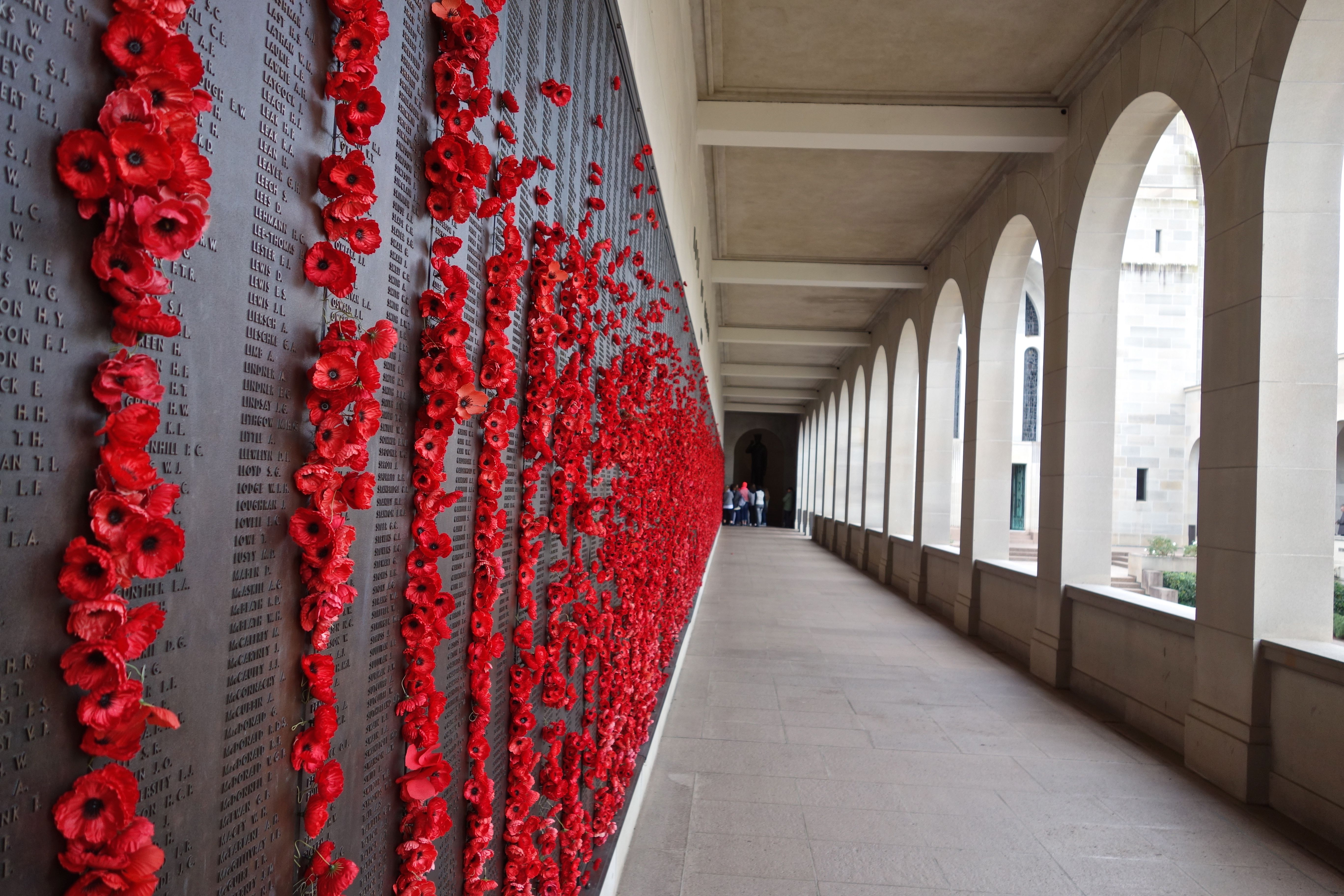
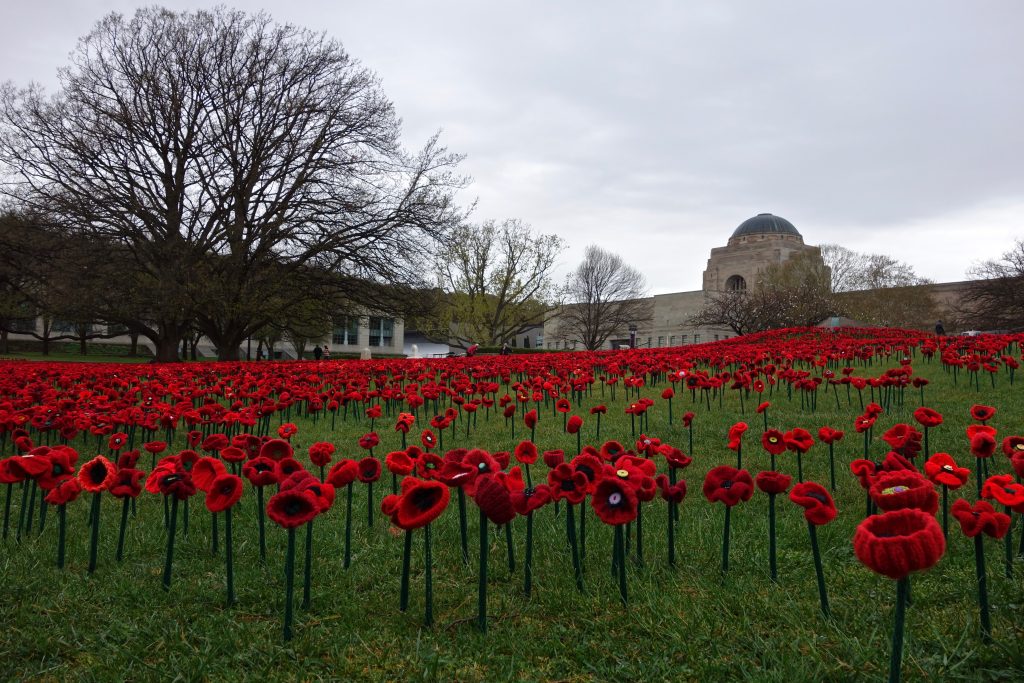


A very personal and sobering post. Thank you.
Thank you for this personal story. It is indeed a sobering day that we celebrate, Trish. I was led to believe that my great uncle died in WWI, with the Royal Field Artillery in France. I only learnt recently from my family history research that he died in 1944! I can only conclude that he suffered some form of mental trauma, and spent nearly 30 years in an institution.
Thanks for your comment, Pieter. It was sobering for me to write it.
Thanks for commenting. I was amazed by the number of men lost out of our small population. Do you think young blokes would volunteer as quickly today as they did then?
A day that means so much and is honoured as it should be,, my cousins parents were to do with all this somehow not sure, and now she often gets involved with the days activities and parades that her town holds… Great remembrance…
It always means a lot to a family with veterans, but this being the 100th year since the Gallipoli invasion (disaster) it’s very special. Unfortunately, I’m not there, but I can be there in spirit and in blog.
The Gallipoli invasion is all over our news today…. we have so much to be grateful for these soldiers..
Human nature never ceases to surprise me, Trish. In truth, I don’t know, but I was glad to miss out on the draw in the sixties. Somehow that seemed inequitable 🙂
That’s really interesting to hear. I’m not in Australia so I’m missing it all. Thanks for telling me.
This sobering post highlights the senseless loss of young lives and the sorrow and heartbreak that linger on for generations. Thank you for sharing your family history and personal perspective. I have no personal or familiar ties with either world wars but I’m still moved to tears by the stories.
Thanks very much for your comment. It’s good to hear what readers think.